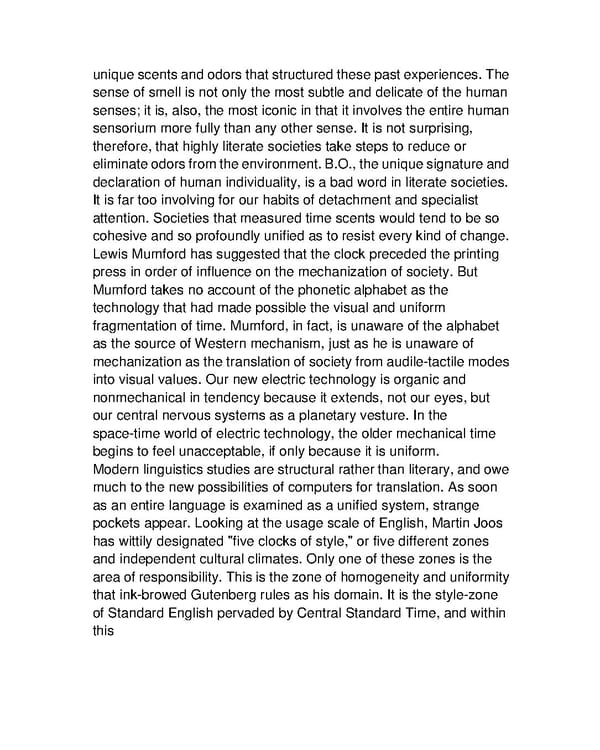unique scents and odors that structured these past experiences. The sense of smell is not only the most subtle and delicate of the human senses; it is, also, the most iconic in that it involves the entire human sensorium more fully than any other sense. It is not surprising, therefore, that highly literate societies take steps to reduce or eliminate odors from the environment. B.O., the unique signature and declaration of human individuality, is a bad word in literate societies. It is far too involving for our habits of detachment and specialist attention. Societies that measured time scents would tend to be so cohesive and so profoundly unified as to resist every kind of change. Lewis Mumford has suggested that the clock preceded the printing press in order of influence on the mechanization of society. But Mumford takes no account of the phonetic alphabet as the technology that had made possible the visual and uniform fragmentation of time. Mumford, in fact, is unaware of the alphabet as the source of Western mechanism, just as he is unaware of mechanization as the translation of society from audile-tactile modes into visual values. Our new electric technology is organic and nonmechanical in tendency because it extends, not our eyes, but our central nervous systems as a planetary vesture. In the space-time world of electric technology, the older mechanical time begins to feel unacceptable, if only because it is uniform. Modern linguistics studies are structural rather than literary, and owe much to the new possibilities of computers for translation. As soon as an entire language is examined as a unified system, strange pockets appear. Looking at the usage scale of English, Martin Joos has wittily designated "five clocks of style," or five different zones and independent cultural climates. Only one of these zones is the area of responsibility. This is the zone of homogeneity and uniformity that ink-browed Gutenberg rules as his domain. It is the style-zone of Standard English pervaded by Central Standard Time, and within this
 Understanding Media by Marshall McLuhan Page 163 Page 165
Understanding Media by Marshall McLuhan Page 163 Page 165